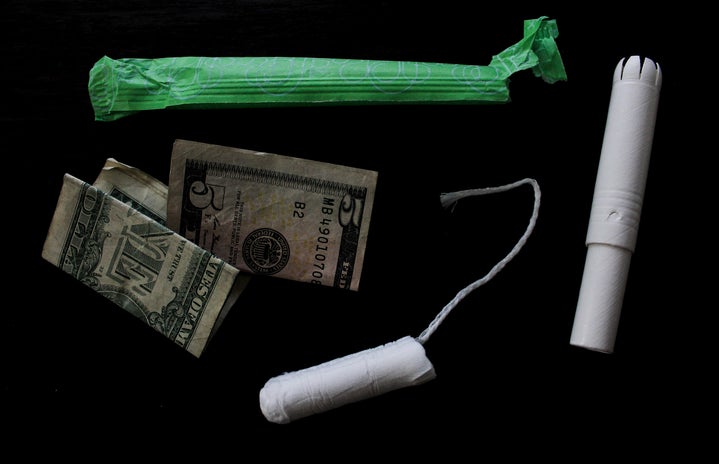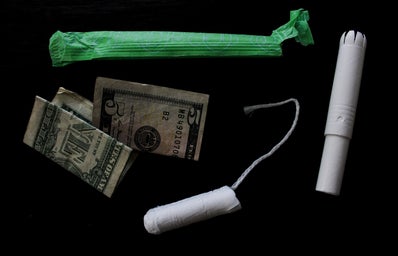Tampons: a basic necessity for women — or are they? 37 of all 50 states tax the purchase of tampons; it’s clear that legislators at those 37 states don’t see the menstrual product as a necessity. The irony is that other daily products, such as groceries, toilet paper, chapstick, shaving cream, medicine, cake decorations — and even condoms — are not taxed.
Items are taxed as either luxuries or necessities. Luxury items are the non-essential items, and necessities are items people need in their daily lives. The definition of “necessity” is vague, which is why governmental bodies have been able to avoid the tampon tax problem. Still, necessities and medical products are often tax-exempt; but it’s often difficult to define just what these “medical products” entail. Cotton balls are considered medical necessities, yet tampons aren’t in 37 states; but if you think about it, tampons share very similar properties with cotton balls: the purpose of tampons is keep women clean and free from risks of infection. So far only Illinois, Maryland, Massachusetts, Minnesota, New Jersey, New York, and Pennsylvania have exempted tampon tax. These states have made it so tampons have their own separate tax classification. For example, Minnesota and Massachusetts have exempted feminine products through a “health products” exemption, while New Jersey has created a sales tax exemption for feminine products specifically.

The estimated tax revenue loss from getting rid of the tampon tax would be around $22 million. From an economic standpoint, it may seem illogical to categorize tampons as necessities; yet principles of economics help to prove that tampons should in fact be categorized as such. The concept of perfect inelasticity in economics points to the idea that necessities will still be purchased at the same rate even when the market’s going through rough times. See, even when the economy fluctuates, tampons will continue to be purchased; they’re bona fide necessities.



